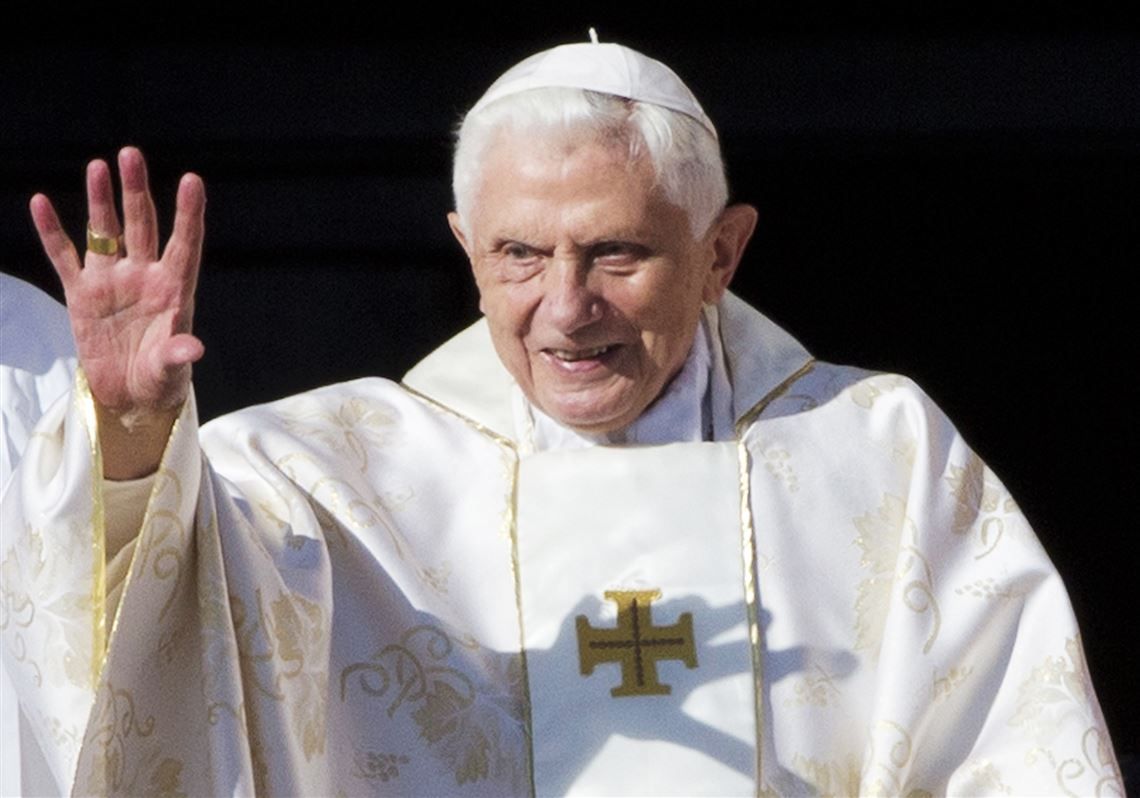Early this morning, as many of you probably know, our beloved Pope Emeritus Benedict XVI passed away at the age of 95. Where do I even begin to summarize his epic life? He lived through almost a hundred years of eventful history, participated in some of it directly, and wrote about the theological implications of most of it. He wrote 66 books, three Church Encyclicals, four Apostolic Exhortations, and a number of major speeches. His output was immense. He was one of the key intellectuals behind the Vatican II Council, and an intellectual guide for the papacy of his predecessor, Pope John Paul II. Through it all, and there were many who demonized him both within and outside the Church, he was a gentle man, a lover of the arts, a man of prayer and spirituality. One aspect of his character that seems to go unnoticed was his humility. He was an intellectual giant of the type I deeply respect and have always wanted to emulate. In short, he was my favorite pope of my lifetime.
From what I gathered surfing around the news world, Pope BXVI (my shorthand for Pope Emeritus Benedict XVI) will be remembered for being the first pope in almost 600 years to resign the office. I have seen criticism of it, but he was 85, frail, in not the best health, and trying to perform the duties of the modern era. He went on to live ten years, but from accounts he did not expect to live a year.
If you want a general perspective on his life, writings, and thoughts, this article from Aleteia, “Benedict XVI,the pope of surprises” did what seems to be a thorough job.
There
are many theological ideas that Pope Benedict explored and commented on, but he
had a way of bringing out their societal implications. For instance, he first observed how the
relativism of faith has had implications on our society, a concept he called “the
dictatorship of relativism.”
“Today, a particularly insidious obstacle to the task of education is the massive presence in our society and culture of that relativism which, recognizing nothing as definitive, leaves as the ultimate criterion only the self with its desires,” he said in an address in Rome in 2005. “And under the semblance of freedom it becomes a prison for each one, for it separates people from one another, locking each person into his or her own ego.”
Can you see how gay marriage and what I’ll call the relativism of gender has flowed from what contemporary society has determined to be a lack of fixed truths?
You
can easily find the highlights of his life, so I’m not going to list them. Instead I’m going to embed a video where
Bishop Robert Baron puts Pope Benedict XVI’s life and ideas into context. It’s just over a half hour.
Finally,
BXVI was a great lover of music, and from what I understand an accomplished
pianist. Aleteia also has an article
on BXVI’s favorite musical pieces, and it’s a good deal of Mozart and Bach.
He
seemed to have a special love for Mozart.
From the article:
Pope Benedict XVI once
described one of his early encounters with the music of Mozart, while attending
a Mass penned by the great composer. He described Mozart’s treatment of the
Mass as “music that could only come from heaven; music in which was revealed to
us the jubilation of the angels over the beauty of God.” He added:
“The joy that Mozart gives us, and I feel this anew in every encounter with him, is not due to the omission of a part of reality; it is an expression of a higher perception of the whole, something I can only call inspiration out of which his compositions seem to flow naturally.”
The
article also goes on to say that the first concert Joseph Ratzinger ever
attended was a performance of Mozart’s Requiem Mass. So as a fitting conclusion to this post, I
want to conclude this post with three pieces from “The Requiem in D minor, K.
626.” First the Introit and Kyrie which
are here together.
The third piece will be the Domine Jesu, an appeal to Christ to save the soul of the dead.
Here are the lyrics in English.
Lord Jesus Christ, King
of glory,
deliver the souls of all
the faithful departed
from the pains of hell
and from the bottomless pit:
deliver them from the
lion's mouth,
that hell swallow them
not up,
that they fall not into
darkness,
but let the
standard-bearer holy Michael
lead them into that holy
light:
Which Thou didst promise of old to Abraham and to his seed.
That
is just so beautiful. I am certainly
saddened by the death of my beloved BXVI.
But given his age, and watching my mother struggle with old age, I can
see how it is eventually a blessing. May
Pope Emeritus Benedict XVI continue to bless us from above.
Eternal rest
grant unto him,
O Lord, and let perpetual light
shine upon him.





.jpg)


.jpg)





